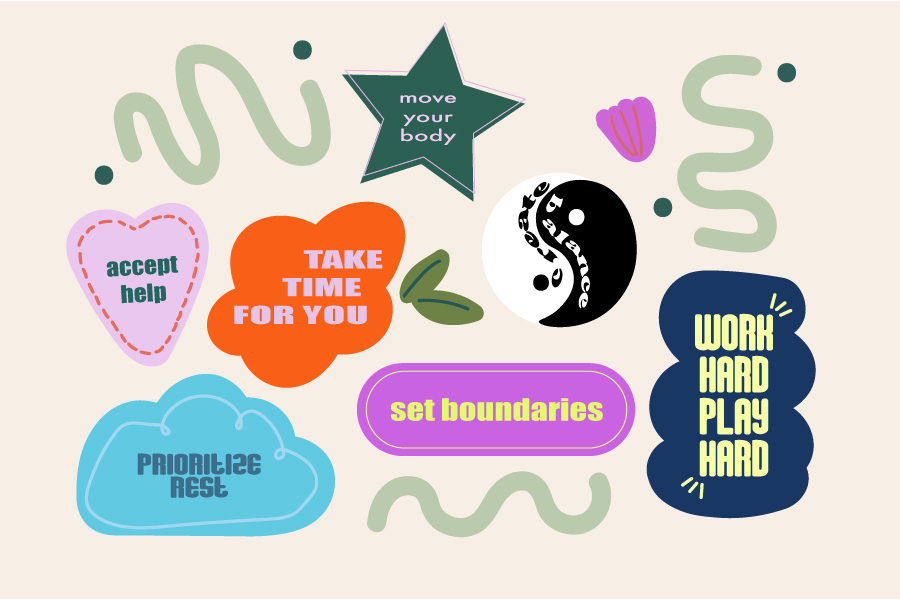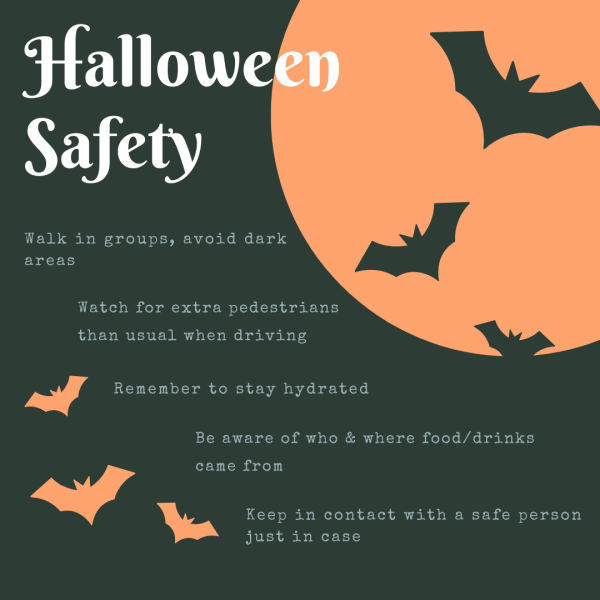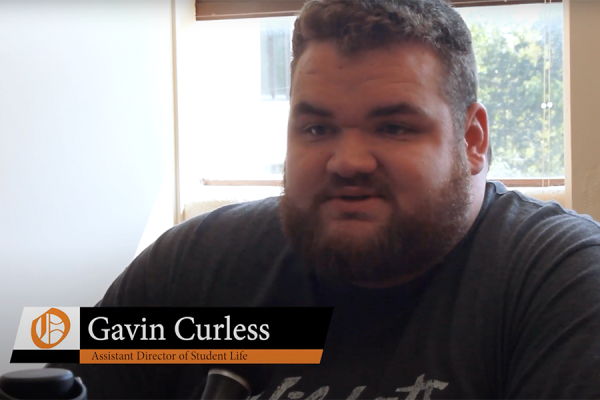How to avoid burnout this spring semester
Moving your body, prioritizing rest and creating a school life balance are just a few ways to avoid academic burnout this spring semester.
Last spring, I experienced what is known as academic burnout. While I am no stranger to feeling overwhelmed and anxious, this was something I had never experienced before. Researchers define burnout as a negative emotional, physical and mental reaction to prolonged studying that results in exhaustion, frustration, lack of motivation and reduced ability in school. Additional symptoms include irritability, fatigue, depression, overwhelm, anxiety and avoiding work or social settings.
By the middle of last spring semester, I started to experience the symptoms listed above.
I lost all motivation to do work. I fell behind in my classes and I wasn’t excited about anything anymore. I shut everyone out of my life, including my roommate and my closest friends. I kept to myself and when I was around people I just felt irritated. I lost all appetite and had to force myself to eat. I knew I was in some sort of a funk but I couldn’t get out of it.
I was unable to pinpoint the feeling until my therapist at the time confirmed that I was experiencing academic burnout. It was right after our three day weekend “spring break” that I really started to feel the effects.
While the lack of break made sense at the time, it was extremely damaging to mine (and lots of others’) mental health. What was supposed to be a condensed time period to relax ended up being just another weekend to catch up on homework.
With no clean break in the schedule, it all started to catch up to me.
Labeling the feeling was both relieving and concerning at the same time. I felt validated but also stuck and unsure how to continue. My therapist assured me that I was overloaded but capable of finishing.
I decided the only thing I could do was take it day by day. I remained gentle with myself and made sure to prioritize what made me happy.
When the fall semester came around, I was determined to not let myself fall into the same trap.
The end of online classes and the reemergence of in-person classes definitely helped set the scene for a better semester. Seeing my peers and professors in person instantly helped me regain my interest in learning and I was able to remain hopeful.
Aside from that, I mainly focused on preventative action.
There were four things I integrated into my life that helped ease the weight of college. The first step was cutting my course load. I decreased my hours to a number I was comfortable with and made sure it didn’t go above that. I didn’t let the number of hours other people were taking influence how many I would take.
The second course of action was setting a firm boundary between me and my coursework. I stopped all homework around 9-10 p.m. every night. This not only allowed for rest after a long day but also forced me to get the work done during my free time during the day.
Third, I tried as hard as possible to get work done on the weekdays so I could fully enjoy the weekends. Of course, I had an assignment or two that would be due every Monday but for the most part, Saturday and Sunday were for destressing and relaxing.
Lastly, I started every morning with a quick yoga session on YouTube. This provided an insane amount of stability to start my days and allowed me to fully wake up and be present for class. Mixing physical movement with an activity I genuinely enjoyed gave me something to look forward to every day.
These few changes really helped me stay afloat. Obviously, I still had moments where I felt stressed out, but for the most part, I felt that I had a grip on things.
If this experience resonated with you, please know you are not alone. According to a study led by the Ohio State University Wexner Medical Center, 71% of students reported feeling burnout in 2021. This feeling is not uncommon in the slightest.
The best way to prevent burnout this spring is to make changes in your life before things get bad. This includes making time for enjoyable activities, getting outside and creating a healthy school life balance.
When it comes down to it, carving some time out of each day dedicated just for you will start to add up. Spreading yourself too thin won’t be helpful to anyone and will just result in you feeling overworked.
Recovery from burnout may include seeking help. Academic burnout is not something to ignore, as it’s important to stop it before it grows.
I would highly recommend these practices and finding what works for you. Take care of yourself and prioritize your needs this spring. You deserve it.
Student Counseling Center
Dr. Tim Hodges, Director
785-594-8409

Rebekah Nelson is a senior from Newton, Kans, majoring in mass media and minoring in studio art. She works as the multimedia editor for The Baker Orange...











